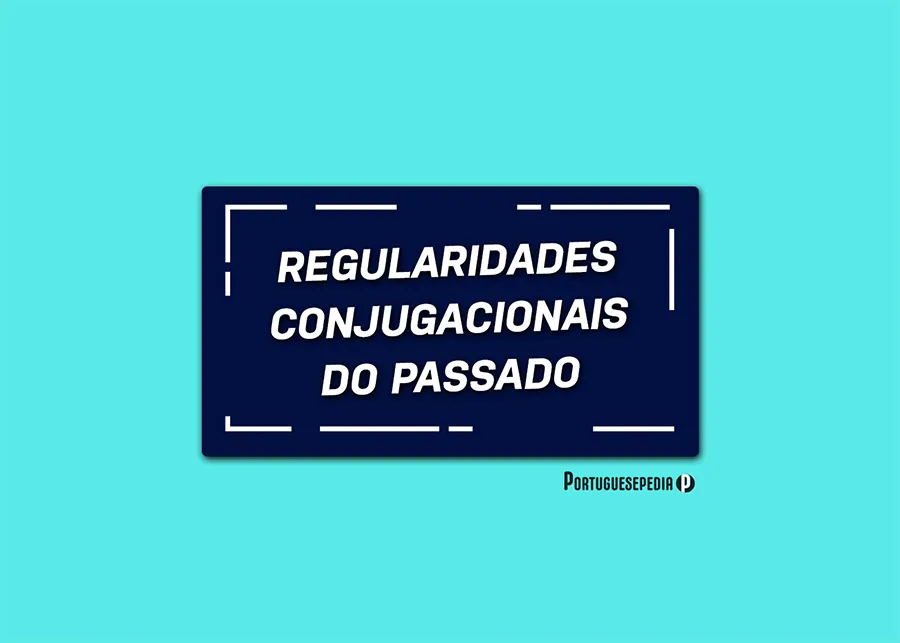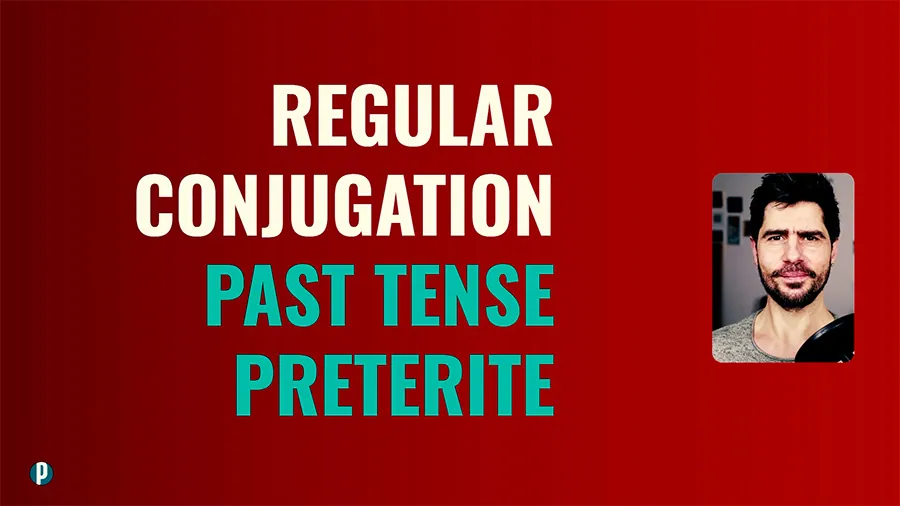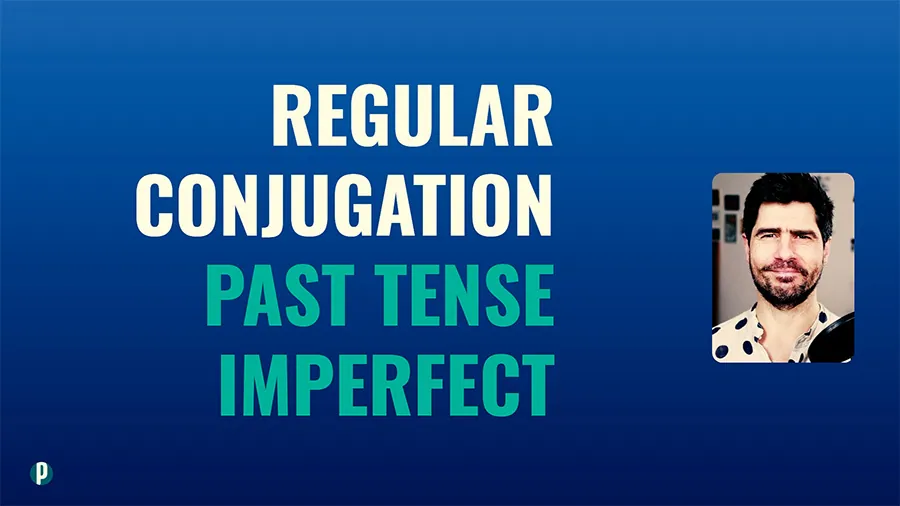
Portuguese Regular Verbs in the Past Tense
Let’s look at Portuguese regular verbs and conjugation patterns in the Past tense – both Preterite and Imperfect conjugations (aka Pretérito Perfeito and Pretérito Imperfeito).
As you’ll see, the Preterite and Imperfect tenses are “less irregular” than the Present tense as there are fewer irregular verbs.
Read on.
Here’s the analogous article for the Present tense: Portuguese Regular Verbs in the Present Tense.
This article is exclusively about conjugation patterns for the Preterite and Imperfect tenses. Here’s a read to dive into their usage: Portuguese Perfect vs. Imperfect Tense: Know When to Use Either.
Preterite (Pretérito Perfeito)
Regular conjugation
To conjugate Portuguese regular verbs in the Preterite tense, remove the infinitive form’s ending – either –ar, –er, or –ir – and add, instead, the following endings to the stem (as marked in bold):
| 1st conjugation: -ar (falar) | 2nd conjugation: -er (correr) | 3rd conjugation: -ir (domir) | |
| Eu | falei | corri | dormi |
| Tu | falaste | correste | dormiste |
| Ele, ela, você | falou | correu | dormiu |
| Nós | falamos | corremos | dormimos |
| Vocês | falaram | correram | dormiram |
| Eles, elas | falaram | correram | dormiram |
Irregular cases
Here are Preterite’s irregular verbs:
| eu, tu, ela, nós, vocês/elas | |
| ser | fui, foste, foi, fomos, foram |
| ir | fui, foste, foi, fomos, foram |
| estar | estive, estiveste, esteve, estivemos, estiveram |
| ter | tive, tiveste, teve, tivemos, tiveram |
| pôr (repor, transpor, compor, etc) | pus, puseste, pôs, pusemos, puseram |
| haver | houve (third-person only) |
| dar | dei, deste, deu, demos, deram |
| fazer | fiz, fizeste, fez, fizemos, fizeram |
| querer | quis, quiseste, quis, quisemos quiseram |
| dizer | disse, disseste, disse, dissemos, disseram |
| poder | pude, pudeste, pôde, pudemos, puderam |
| vir | vim, vieste, veio, viemos, vieram |
| ver | vi, viste, viu, vimos, viram |
| sair | saí, saíste, saiu, saímos, saíram |
| cair | caí, caíste, caiu, caímos, caíram |
| saber | soube, soubeste, soube, soubemos, souberam |
| trazer | trouxe, trouxeste, trouxe, trouxemos, trouxeram |
It is worth noticing that Ser and Ir share the same verb forms in the Preterite (discernment between them is left to context).
Likewise, the verbs Ter and Estar have the pronunciation in practice. See, we tend to leave out Estar’s first syllable – (es)tou, (es)tás, … – in casual speech.
Make sure you keep an eye out for high-frequency irregular verbs: Portuguese Must-Know Irregular Verbs.
Imperfect (Pretérito Imperfeito)
Regular conjugation
Here are the conjugation patterns for Portuguese regular verbs in the Imperfect tense:
| 1st conjugation: -ar (falar) | 2nd conjugation: -er (correr) | 3rd conjugation: -ir (domir) | |
| Eu | falava | corria | dormia |
| Tu | falavas | corrias | dormias |
| Ele, ela, você | falava | corria | dormia |
| Nós | falávamos | corríamos | dormíamos |
| Vocês | falavam | corriam | dormiam |
| Eles, elas | falavam | corriam | dormiam |
Notice that the second and third conjugations share the same endings in the Imperfect.
Also, the first-person plural of the Imperfect tense is always stressed on the third-last syllable, thus the acute accent mark.
Learn more about Portuguese accent marks and word stress: Portuguese Word Stress and Accent Marks.
Irregular cases
The Imperfect tense has even fewer irregular verbs than the Preterite – there are only four of them:
| eu, tu, ela, nós, vocês/elas | |
| ser | era, eras, era, éramos, eram |
| ter | tinha, tinhas, tinha, tínhamos, tinham |
| vir | vinha, vinhas, vinha, vínhamos, vinham |
| pôr (repor, transpor, compor, etc) | punha, punhas, punha, púnhamos, punham |
Here are a few more reads about Portuguese verbs that you may want to take a look at:
• Portuguese Gerund: Progressive Tenses and Beyond
• Portuguese Verb Tenses and Moods Explained: A Usage Rundown Anchored to English
• Portuguese Personal Infinitive: What Is It and When to Use It

Olá! I'm Pedro and I'm your Portuguese teacher.
Ready to unlock the beauty of European Portuguese? Portuguesepedia is your key! This all-in-one platform provides a wealth of learning resources, from bite-sized video lessons to immersive idiomatic dips. Perfect your pronunciation and aural comprehension with listening drills and solidify your grammar with in-depth articles. Start your Portuguese journey today!
Share this article
Get my guide "Key Strategies to Learn Portuguese" for FREE.


